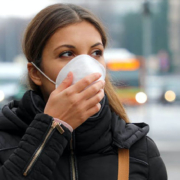One in three young people say they felt happier during lockdown
One in three young people say their mental health and wellbeing improved during COVID-19 lockdown measures, with potential contributing factors including feeling less lonely, avoiding bullying and getting more sleep and exercise, according to researchers at the universities of Cambridge and Oxford.
As the COVID-19 pandemic swept the world, many countries imposed strict lockdown measures, with workplaces and businesses closing and people forced to remain at home. Measures also included school closures, with exceptions for young people whose parents were classified as essential workers and those considered ‘vulnerable’, for example children under the care of social services and those in families or social situations deemed by schools to be of concern.
Several studies have reported that the lockdown had a negative impact on the mental health and wellbeing of young people, but this effect has not been uniformly reported, with a number of studies suggesting that some young people may have benefited from lockdown.
Reseachers explored this issue using the OxWell Student Survey, a large, school-based survey of students aged eight to 18 years living in England. More than 17,000 students took part in the June/July 2020 survey, during the tail end of the first national lockdown, answering questions about their experiences of the pandemic, school, home life, and relationships, among others. The results of their research have been published in European Child and Adolescent Psychiatry.
Release date: 22 February 2022
Source: University of Cambridge









